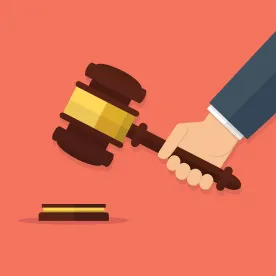Today's post continues the discussion regarding the pending class action lawsuit against Dropbox, Inc. As I mentioned on Monday, the plaintiff is arguing that the company's bylaws do not constitute a contract under California law. The defendants take the opposite view, which is supported by a California Court of Appeal decision cited by neither, O’Byrne v. Santa Monica-UCLA Med. Ctr., 94 Cal. App. 4th 797 (2001).
If bylaws do constitute a contract, who are the parties? In the Dropbox action, the defendants argue that "Dropbox’s Federal Forum Provision is part of a valid contract between Dropbox and its shareholders". It seems to me that other persons might be parties to the contract as well. For example a Bylaw provision mandating indemnification of directors, officers and/or other agents might be considered to constitute a contract between the corporation and the indemnitee. Former Chancellor William B. Chandler III, who is representing Dropbox, reached that conclusion in Reinhard & Kreinberg v. Dow Chem. Co., 2008 Del. Ch. LEXIS 39.
Characterizing bylaws as contractual has numerous implications. For example, it would seem to require that the courts apply the rules governing the interpretation of contracts, the statute of limitations applicable to contracts, contractual defenses, and the implied covenants of good faith and fair dealing. Previously, I have questioned why, if bylaws are contracts, they do not include the usual contractual boilerplate.



 />i
/>i

